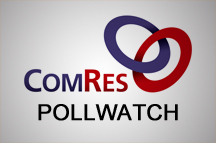Debate in haste, repent at leisure
Despite the rather hollow claim that the 2010 party leaders debates set no precedent for 2015, it was clear four years ago that the genie was never going back in the bottle. The Clegg v Farage spectacles have merely fuelled the expectation among the public that televised (and indeed radio) debates are here to stay.
There are plenty of good reasons why the pressure will prove impossible to resist. First, the media need space to fill. Even a year out from GE2015, it is becoming clear that fixed term parliaments mean that more media content needs to be available in order to stop what will be a year-long election campaign from boring everyone to death.
Second, the polling shows that the public will not let reluctant participants wriggle off the hook. The last time we asked the public (April 2014), most voters thought David Cameron would ‘look like a coward’ if he declined to take part in any debates in the run-up to next year’s General Election. A further problem for the Prime Minister is that 51% also think Nigel Farage should be included in them.
Third, it is firmly in the interests of challenger parties to see that the debates take place. Both the Lib Dems and UKIP will be agitating to get Messrs Clegg and Farage as much airtime as they can muster during the campaign. Indeed, 2010 proved a stark reminder of the power of exposure: I estimate that even though diminishing returns set in with each successive debate, Nick Clegg’s participation in them accounted for around 5 percentage points of Lib Dem vote share.
So – the public wants them, the media definitely want them, but what do politicians think? ComRes asked its panel of 150 MPs to give their verdict, and the results are very telling.

(Click infographic to see larger version)
While there is a positive overall view of the debates as an enhancement to political interest at election time, there is a massive variation by party. Despite David Cameron being widely regarded as an adept televisual performer, only one in three Conservative MPs could bring themselves to respond positively.
Conservatives are also the least enthusiastic about holding leaders debates ‘as a matter of routine for all national elections and referendums’ with only one in four in support, compared to 59% of Labour MPs and fully 80% of Lib Dems.
Most telling of all is the electoral hindsight of regret over the 2010 debates – a massive 62% of Conservatives say they regret the precedent they set, compared to 18% of Labour MPs. Perhaps unsurprisingly, no Lib Dems say they regret the 2010 precedent.
 As a former senior Lib Dem staffer told me after the last election, the biggest challenge for the Lib Dem team negotiating terms for the 2010 debates was keeping a straight face until the Conservatives signed on the dotted line. It was a big political error for which the Conservatives – and perhaps Labour too – could be paying the price up to 2015 and beyond.
As a former senior Lib Dem staffer told me after the last election, the biggest challenge for the Lib Dem team negotiating terms for the 2010 debates was keeping a straight face until the Conservatives signed on the dotted line. It was a big political error for which the Conservatives – and perhaps Labour too – could be paying the price up to 2015 and beyond.
Tom Mludzinski (@tom_ComRes)
Head of Political Polling, ComRes
More information:
To sign up to receive the ComRes Pollwatch via email please visit their website.
To find out more about how ComRes market and opinion research can support your work, please contact:
Jasmine Morgan
020 7871 8655
jasmine.morgan@comres.co.uk














